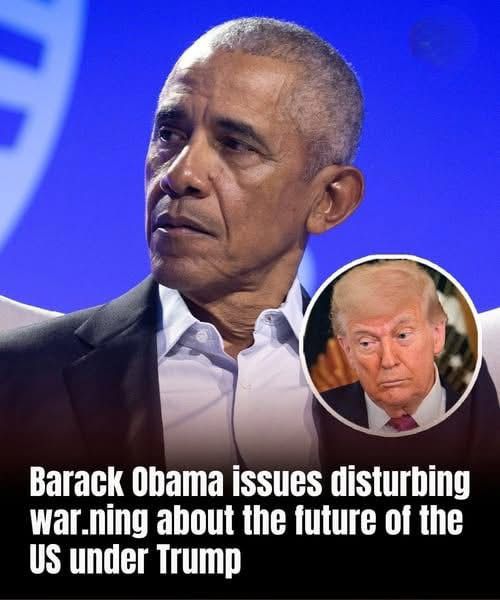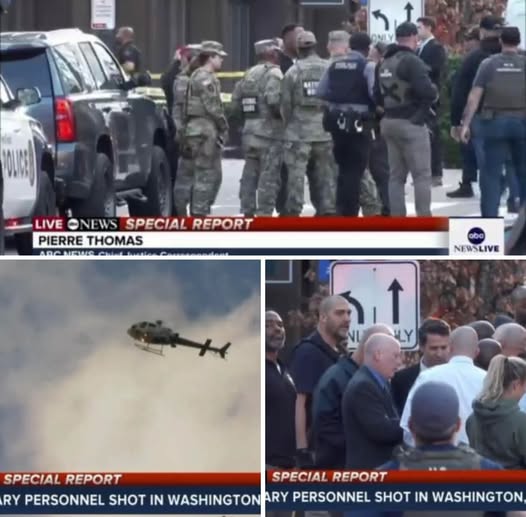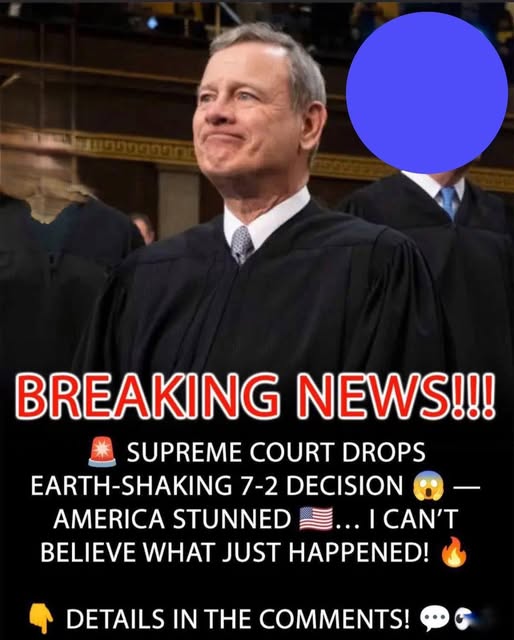Barack Obama has once again stepped into the political spotlight with a stark warning about the direction of the United States under Donald Trump’s leadership. Speaking in Hartford, Connecticut, the former president said he fears the country is drifting dangerously close to abandoning its democratic principles. “We are walking a very fine line,” Obama said. “And if we’re not careful, that line will disappear entirely.”
He drew comparisons between America’s current political climate and countries like Hungary under Viktor Orbán—places that still hold elections but have systematically dismantled democratic checks and balances. “Autocracy doesn’t arrive with a bang,” Obama warned. “It creeps in quietly, through complacency, fear, and a willingness to trade freedom for security.”
Since leaving office in 2017, Obama has largely kept a low profile, choosing to let his successors govern without constant interference. But in recent months, his tone has shifted. No longer content to issue subtle critiques, he is now sounding an unmistakable alarm. The speech in Hartford marked one of his most forceful interventions since his presidency, reflecting growing concern over what he sees as institutional decay and a loss of civic courage.
Obama pointed to several key developments that, in his view, mirror the warning signs seen in nations sliding toward authoritarianism. Among them: the federal government’s increasingly hostile rhetoric toward the press, the militarized responses to civilian protests, and policies that blur the line between patriotism and obedience. “When leaders treat dissent as disloyalty and criticism as a crime, that’s not strength,” he said. “That’s the beginning of something much darker.”
He referenced the Trump administration’s history of aggressive immigration enforcement and the growing use of executive authority to bypass congressional oversight. According to Obama, these actions erode the delicate balance of power that keeps the U.S. system functional. “Democracy doesn’t survive on autopilot,” he said. “It requires constant vigilance, accountability, and a shared belief in the rule of law. Once those fade, institutions become hollow shells—symbols without substance.”
Obama also criticized what he described as “performative patriotism”—the tendency for political leaders to exploit national pride while undermining the very freedoms it represents. “Waving a flag means nothing if you silence the voices of those who question where the country is headed,” he said. “Real patriotism means demanding better from your leaders, not worshipping them.”
In his speech, he highlighted the growing number of public demonstrations—over 2,000 so-called “No King” rallies across all 50 states—that have emerged in response to what participants view as creeping authoritarianism. The protests, often led by young activists, have called for transparency, judicial independence, and protection of voting rights. Obama praised their energy and determination, calling civic participation “the beating heart of democracy.”
But he also cautioned that public protest alone isn’t enough. “Marches and slogans are important,” he said, “but they must be matched by courage inside our institutions. Senators, judges, civil servants—every person in a position of trust—has a duty to defend democracy even when it’s inconvenient, even when it costs them something politically.”
Throughout the address, Obama’s tone alternated between concern and resolve. He reminded the audience that history offers clear lessons about how democracies erode—not through sudden coups, but through gradual normalization of abuses. “When people stop being shocked by corruption, when lying becomes routine, when cruelty is justified as ‘toughness,’ the foundation starts to crack,” he said.
The former president’s comments come as Trump continues to dominate the political landscape, with loyalists reshaping key government agencies and allies calling for sweeping expansions of executive power. Critics have accused Trump of blurring the lines between governance and self-interest, citing his attacks on the Justice Department, the FBI, and independent media outlets. Supporters, meanwhile, argue that he is simply restoring order to a dysfunctional system.
Obama acknowledged that polarization has deepened across both parties, but he placed particular emphasis on what he called “a moral responsibility” among Republicans to push back against undemocratic behavior. “When loyalty to one man outweighs loyalty to the Constitution, that’s when democracy dies,” he said. “And if that sounds alarmist, it’s because history proves it true again and again.”
He urged Americans—regardless of political affiliation—to focus less on personalities and more on principles. “This isn’t about left versus right,” he said. “It’s about whether we still believe in facts, in reason, in the peaceful transfer of power, and in the idea that no one—not even a president—is above the law.”
Obama’s warning also touched on the role of technology and disinformation in eroding public trust. He described a society “flooded with lies and half-truths,” where algorithms amplify outrage and reward extremism. “When truth becomes optional,” he said, “democracy becomes impossible. Because the moment you can no longer agree on reality, you can no longer solve problems together.”
In one of the most striking moments of his speech, Obama referenced his own presidency, admitting that he had sometimes underestimated how fragile democratic institutions can be. “I thought our system was stronger than any one person,” he said. “But what we’ve seen is that laws and norms only matter when people believe in them—and defend them.”
He called on Americans to return to civic basics: voting in every election, supporting independent journalism, demanding accountability, and rejecting the culture of apathy. “Democracy doesn’t end when you cast a ballot,” he said. “It begins there. The question is what we do between elections—how we treat each other, how we hold leaders to account, how we protect the truth.”
Toward the end of his remarks, Obama struck a hopeful note. While warning of the dangers ahead, he also expressed faith in the resilience of ordinary citizens. “I’ve met too many people—teachers, veterans, small business owners, students—who love this country too much to let it slip away,” he said. “If enough of us stay awake, stay engaged, stay honest, we’ll be fine. But if we fall asleep, if we look away, we may wake up one day in a country we don’t recognize.”
His closing words were both sobering and defiant. “The promise of America has always been fragile,” he said. “But it’s also been renewed again and again by people who refused to give up on it. The question now is whether we’ll be those people again.”
As the audience rose to applaud, the message was unmistakable. Obama wasn’t just criticizing a political rival—he was issuing a call to arms for democracy itself. His warning wasn’t about fear; it was about responsibility. Whether the nation heeded it, he said, would determine not just the next election, but the very character of the republic.




